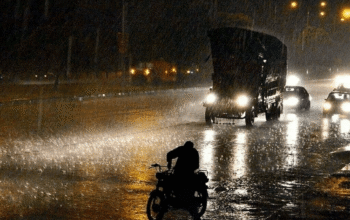Former Prime Minister Nawaz Sharif calls for reference against three judges, accusing the Supreme Court of crippling the government and plunging Pakistan into a constitutional crisis.
By Staff Reporter
ISLAMABAD: The coalition cabinet of Prime Minister Shehbaz Sharif on Tuesday swiftly rejected the verdict of the Supreme Court regarding the postponement of elections in Punjab and Khyber Pakhtunkhwa (KP).
The decision was made following the announcement of the verdict by a three-member bench of the apex court, which had reserved its decision the previous day.
The bench, headed by Chief Justice Umar Ata Bandial and comprising Justice Ijaz Ul Ahsan and Justice Munib Akhtar, had declared the Election Commission of Pakistan’s (ECP) decision to delay the polls in Punjab and KP from April 30 to October 8 as “null and void”.
In its ruling, the Supreme Court unequivocally stated that the ECP’s order, dated March 22, 2023, was unconstitutional, devoid of lawful authority or jurisdiction, void ab-initio, and of no legal effect, and therefore, it was quashed.
However, the cabinet dismissed the verdict as a “minority verdict” and swiftly rejected it, asserting that it was not enforceable.
Furthermore, it was decided during the cabinet meeting that the ruling coalition’s parties would raise the Supreme Court’s decision in parliament.
The current crisis emerged from the delay in elections for the provincial assemblies of Punjab and Khyber Pakhtunkhwa, which were dissolved by former Prime Minister Imran Khan’s party in January in a bid to force early nationwide elections.
Historically, Pakistan holds provincial and national elections simultaneously.
Reacting to the verdict, Pakistan Muslim League Nawaz (PML-N) chief organiser Maryam Nawaz took to Twitter, describing it as the culmination of a conspiracy that began with “rewriting the Constitution and presenting the Punjab government on a plate” to Imran Khan, whom she referred to as the bench’s “blue-eyed boy.”
Law Minister Azam Nazir Tarar also criticized the Supreme Court’s decision, arguing that it had itself provided the election date and schedule, and urged “the honorable chief justice to form a full court” instead of turning the issue into a “matter of ego”.
Tarar further emphasized that it should not be perceived that any institution was “facilitating” any particular party, and expressed bewilderment over why political parties had not been made a party to the case.
Meanwhile, three-time former Prime Minister Nawaz Sharif called for filing a reference against three top court judges, amid the escalating dispute over the provincial election date, which has plunged the country into a constitutional crisis.
In a scathing critique during a press talk in London, Sharif accused the judiciary of “crippling” the government and rendering parliament “worthless,” and condemned the judges for facilitating past military dictators who had overthrown elected governments.
“I believe that it is extremely regrettable to destroy everything by crippling the state for the love of a favored one,” said the former premier, who himself was ousted by the top court in a controversial verdict in 2017. “I understand that a reference should be filed in the Supreme Judicial Council against the judges for the verdict. Today’s decision is a chargesheet against them.”
Interior Minister Rana Sanaullah hinted at the possibility of invoking an emergency in the country, citing Article 232 of the constitution, which allows the president to declare a state of emergency in case of war, external aggression, or internal disturbance beyond the control of a provincial government.
However, the declaration must be approved by the National Assembly, the lower house of the parliament, within 30 days of its imposition.
“When circumstances develop, the option of emergency is stated in the constitution,” Sanaullah told reporters outside the Supreme Court.
“That article is there in the constitution and it has not gone anywhere.”
Copyright © 2021 Independent Pakistan | All rights reserved




